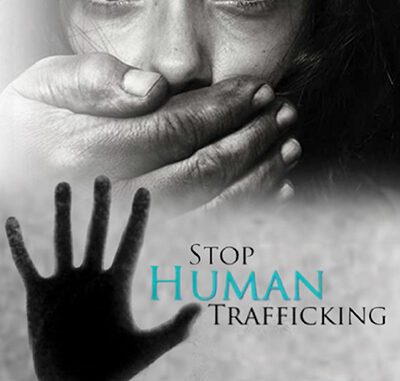
By Uriah Williams
A state bill designed to crack down on places used for human trafficking doesn’t target hotels and motels where most of the illegal operation occurs, according to victims and lawmakers.
At the end of the 2023 Legislative Session, lawmakers adopted House Bill 7045 to go after establishments that turn a blind eye to human trafficking including increasing criminal penalties and allowing victims to sue the establishments.
But it doesn’t go far enough- it only targets strip clubs.
Initially, the proposed legislation included hotels and motels but was later removed from the bill, which was proposed by State Rep. Tobin Rogers Overdorf, a Republican from St. Lucie.
State Representative Dotie Joseph, a Democrat from North Miami, said Florida isn’t doing enough to stop human trafficking and blames Republicans for not extending the legislation to motels and hotels.
“Human trafficking is a real issue in Florida, and there are a lot of things that we (the Legislature) can do to stop it, if the GOP supermajority and the governor want to,” she said. “We’re further enabling the people who are doing the trafficking. There’s no reason that we should not be able to pass something with not just hotels, but all these other large establishments that can do something because otherwise we’re encouraging them with our policy decisions to continue to turn a blind eye to stuff that they know or should know is happening within their establishment.”
State Rep. Webster Barnaby, a Republican from Deland, said he is disappointed his GOP colleagues removed hotels and motels from the bill.
“I’m very disappointed to hear that they’ve taken out the hotel component,” said Barnaby.
One of the groups registered to lobby on the bill is the Florida Hotel and Lodging Association, although state records do not show if the association was behind getting hotels and motels removed from the bill.
Florida Republican Governor Ron DeSantis signed the bill into law which takes effect on July 1, 2023.
According to the Florida Alliance to End Human Trafficking, Florida is currently ranked third in the nation for human trafficking cases and second for labor trafficking cases.
There are 4.08 cases per 100,000 people in the state.
Most victims of human trafficking are teenagers.
Savannah Parvu, a human trafficking victim when she was only 12 years old, told reporters outside the State Capitol after the vote her horrific story.
Parvu said she was trafficked at the same hotel over and over again and the staff didn’t alert the local authorities.
“That was the main place that I was trafficked, I was taken to the same hotel all the time,” said Parvu, who is now 16 years-old. “I was normally in the same room, and the staff there would work with my trafficker so that my trafficker would not have to stay with me. I was 12 years old when I was being sold out of hotels in Central Florida. I was taken to a hotel room and sold to several men each night. People who worked at the hotel knew what was happening and never did anything to help me.”
Anti-human trafficking organizations have been campaigning and raising money to raise awareness and lobby state lawmakers to go after places used for the illegal operation, especially motels and hotels.
The legislation was a partial victory for the groups including the Southwest Florida Coalition Against Human Trafficking which lobbied for an earlier bill during the session to improve human trafficking awareness, security and conditions at child and adult safe houses in Florida.
The bill also includes human trafficking awareness and information signs to be “conspicuously” displayed at facilities maintained by child-caring agencies.
According to the Florida Department of Law Enforcement, human traffickers rarely violently snatch their victims off the street but instead rely more on psychological manipulation such as false promises to lure them into particularly exploitative situations, where they can lose control over what’s happening to them.
Some victims often find themselves in debt bondage, requiring them to work off their travel, board, or room expenses.
However, their debt typically grows faster than their meager earnings. Hence, they can never break free of it.
“Human trafficking continues to be a challenge for law enforcement agencies as victims of human trafficking do not have someone advocating for them,” FDLE said in a statement. “They are usually too terrified of the authorities to report their captivity or cooperate with investigators. Human traffickers tune victims to think they may be deported if they go to the authorities. It is also important to note that victims always return to their traffickers since they offer security, care, and basic needs.”


Be the first to comment